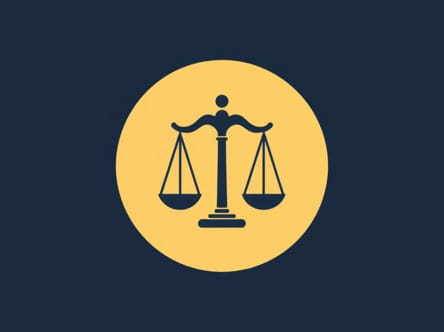In the field of criminal law, certain terms carry significant implications for how a person is charged, sentenced, or treated by the legal system. One such term is ‘recidivist.’ This word is frequently used in legal proceedings to describe individuals who repeatedly commit criminal offenses. Understanding the full meaning of ‘recidivist’ in law, how it applies to cases, and its effects on sentencing is essential not only for legal professionals but also for anyone interested in the workings of the justice system. This topic aims to break down the concept in detail and provide a deeper understanding of how recidivism affects legal outcomes.
Definition of Recidivist in Law
A recidivist is a person who has previously been convicted of a crime and commits another offense after serving their sentence. In legal contexts, this term is often used to justify harsher penalties for repeat offenders. Recidivism, the tendency to reoffend, reflects a pattern of behavior that the law typically treats more seriously than first-time offenses.
Legal Significance of Recidivism
The classification of someone as a recidivist can have a direct impact on the severity of their punishment. Many jurisdictions have laws that impose stricter penalties on repeat offenders. These laws aim to deter individuals from committing further crimes and to protect society by incapacitating habitual lawbreakers.
- Three Strikes Laws: In some legal systems, individuals who commit three or more serious crimes may receive a life sentence.
- Enhanced Sentencing: Courts may use prior convictions to justify longer prison terms or mandatory minimum sentences.
- Parole Considerations: A history of repeated offenses may disqualify an individual from early release or parole programs.
Elements That Identify a Recidivist
Certain factors are used to determine whether an individual qualifies as a recidivist in a legal context. While exact criteria may vary depending on jurisdiction, the general elements include:
- At least one prior conviction for a criminal offense
- A new offense committed after the previous conviction or imprisonment
- A pattern of similar or escalating criminal behavior
These factors are examined by prosecutors and judges to assess whether enhanced penalties should apply. A recidivist label is not applied lightly, as it significantly influences how the law handles the offender.
Types of Recidivism
Understanding recidivism also requires recognizing that it can occur in various forms. Legal systems sometimes distinguish between types of recidivist behavior based on the nature of the offenses involved:
- Habitual Recidivism: Involves multiple offenses over a prolonged period, often with increasing seriousness.
- Specialty Recidivism: Refers to repeated offenses of the same kind, such as theft or drug violations.
- General Recidivism: Involves a range of unrelated criminal acts without a specific pattern.
Each type may carry different legal implications, especially when courts consider sentencing or parole eligibility.
Examples in Legal Practice
In practice, being labeled a recidivist can change the entire outcome of a criminal case. For instance, a person convicted of burglary for the third time may face a significantly longer sentence than someone convicted for the first time. In jurisdictions with strict habitual offender laws, even non-violent crimes can lead to life sentences if committed repeatedly.
Courts often rely on criminal records, police reports, and sentencing guidelines to establish a person’s status as a recidivist. Defense attorneys may argue against the classification by highlighting time gaps between offenses, changes in behavior, or the non-severity of prior crimes.
Impact on the Justice System
The concept of recidivism plays a central role in shaping criminal justice policies. Legislators and law enforcement agencies track recidivism rates to evaluate the effectiveness of correctional programs, rehabilitation efforts, and sentencing laws.
High Recidivism Rates
High recidivism rates often indicate systemic issues such as:
- Ineffective rehabilitation or reintegration programs
- Lack of mental health or substance abuse treatment
- Poor social support systems for former inmates
Efforts to Reduce Recidivism
Many criminal justice reforms aim to reduce the rate of repeat offenses through:
- Education and vocational training for inmates
- Post-release supervision and support
- Diversion programs for non-violent offenders
By lowering recidivism, the justice system can improve public safety, reduce prison overcrowding, and use taxpayer funds more efficiently.
Criticism and Controversy
Although laws targeting recidivists aim to deter crime, they are not without criticism. Critics argue that these laws may lead to overly harsh penalties, especially for non-violent or minor offenses. There is also concern that these laws disproportionately affect marginalized communities, contributing to systemic inequality in sentencing.
For example, a person convicted three times for minor thefts could face the same sentence as someone convicted of a violent felony, depending on how the law defines ‘serious’ crimes. This has led to calls for reform and more individualized sentencing based on the circumstances of each case.
Recidivism and Criminal Records
Having a criminal record plays a key role in recidivism labeling. A prior conviction often stays on record for many years and can be used against a person in future cases. This is especially important in jurisdictions where even juvenile convictions may count toward recidivist status if committed again as an adult.
Expungement and Its Limits
Some jurisdictions allow for the expungement of criminal records, which means the records are sealed or erased from public view. However, even expunged records might be accessible to courts in determining recidivism. Legal counsel is often necessary to understand how a criminal history might influence future legal proceedings.
In legal terminology, the meaning of ‘recidivist’ holds significant weight. It reflects a pattern of behavior that the justice system views with heightened concern. Whether through enhanced sentencing, parole denial, or legal stigma, being labeled a recidivist affects multiple aspects of an individual’s legal journey. While intended as a tool for protecting society, recidivist laws also raise important questions about fairness, rehabilitation, and the possibility of reform. As legal systems evolve, finding a balance between accountability and compassion remains a critical challenge in addressing repeat offenses.
